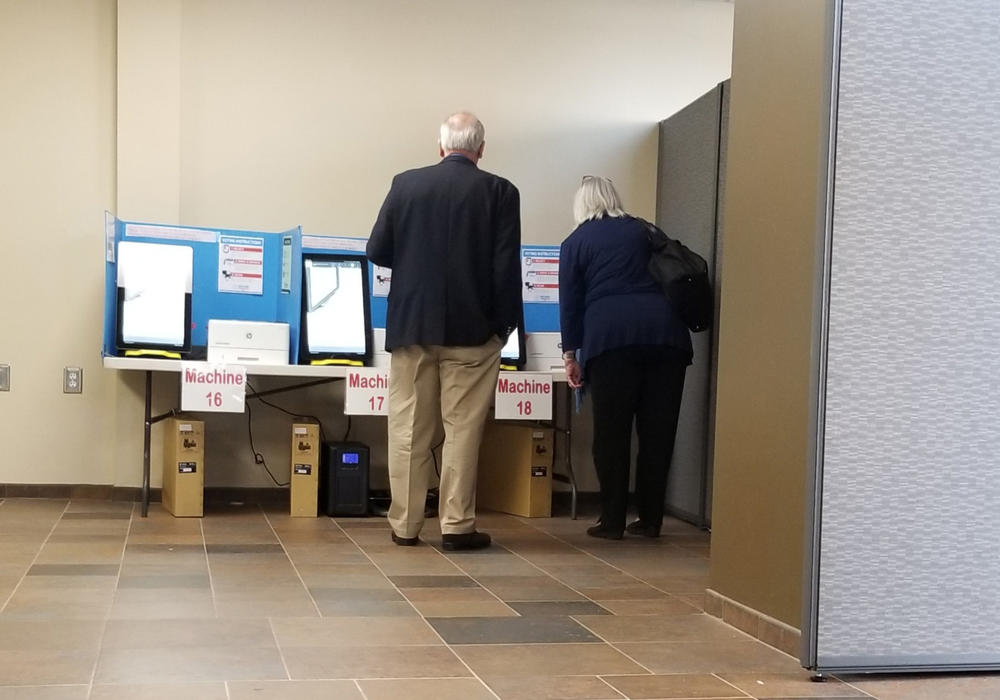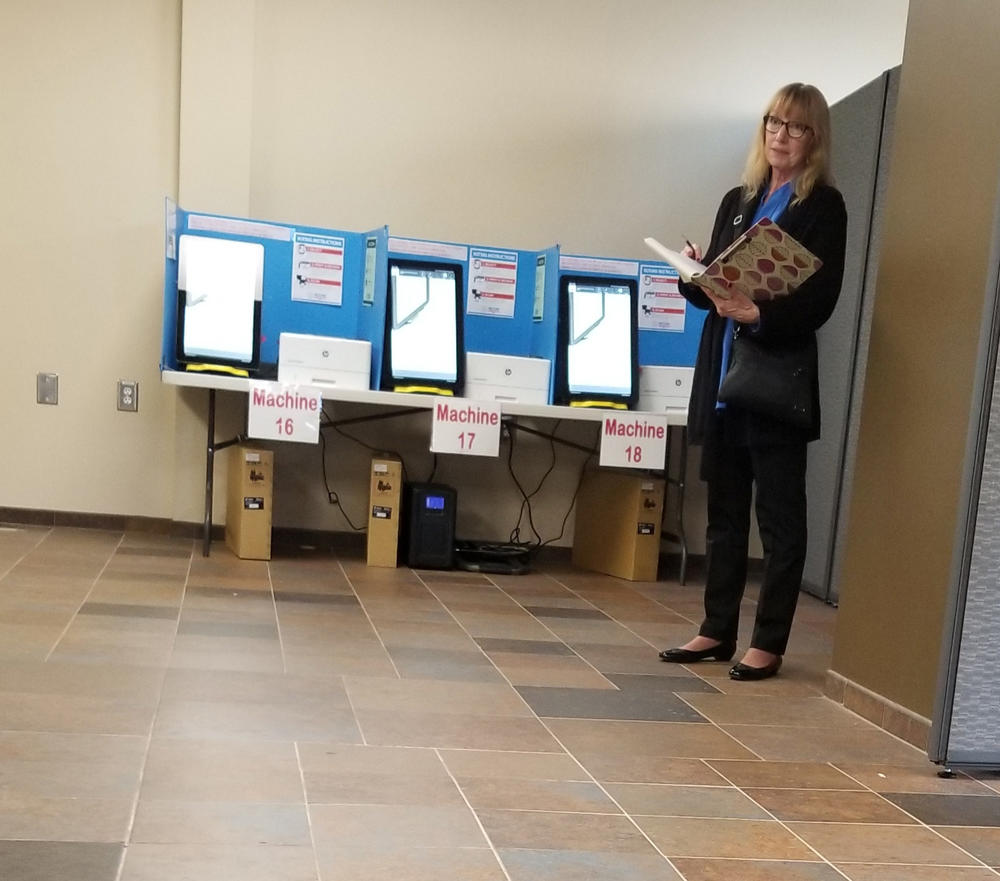Section Branding
Header Content
Georgia Voting Machine Critics Investigated For Alleged Polling Place Violations
Primary Content
The Georgia Secretary of State’s office has opened an investigation into allegations that three vocal critics of Georgia’s new ballot-marking device voting machines potentially violated election law while observing voting at a Paulding County polling place this past Election Day.
According to a statement from the Secretary of State’s spokesperson Walter Jones, elections officials received complaints from poll workers and voters that three people “were in an area of the polling place where only voters and election officials are allowed to be” at the Watson Government Building in Dallas.
Marilyn Marks, head of the nonprofit Coalition for Good Governance, posted a copy of a complaint she received that said she, Georgia Tech cybersecurity professor Richard DeMillo and his wife Rhonda Martin, who is a plaintiff in several lawsuits challenging Georgia election practices, “were all observed inside the enclosed space, without authorization, at a Paulding County polling location” for more than an hour and a half.
The trio are supporters of hand-marked paper ballots instead of the new $107 million ballot-marking device system the state is rolling out ahead of the March 24, 2020 presidential primary.
They have also denied the allegations, with Marks calling it on Twitter an “unsurprising case of [the secretary of state’s office] effort to intimidate me and other witnesses to the embarrassing failures of the new voting system.”
At issue is the interpretation of Georgia code § 21-2-267 (a), which defines how polling places should be set up. Georgia law demands an “enclosed space,” or six-foot perimeter around voting machines, be off-limits to anyone but the person voting or someone authorized by the poll manager.
At the Paulding County precinct, a physical barrier was set up around that six-foot mark with an entryway for voters to get into the voting area. Paulding elections officials say that means Marks, DeMillo and Martin were in an unauthorized area when they were standing inside the barrier.
DeMillo and Marks say they had permission from poll workers to be inside the voting machine room, something Paulding elections officials dispute.
“If I had crossed some line that I wasn’t aware of, I am sure someone in authority would have let me know and told me to step back,” DeMillo wrote in a statement. “No one said anything to me, although there were many election officials and law enforcement officers present.”
Georgia law also demands polling places be observable by the public. Marks argued that the partitions around the voting machines made that impossible to do. That part of the code says the setup of voting machines should “permit the public to observe the voting without affecting the privacy of electors as they vote.”
Paulding officials said there was plenty of space to do that through the gaps in the partition – outside of the voting area.
Marks also pointed to the Georgia poll worker training manual, which reads that “all duties must be performed in full view of the public.” But the very next sentence in the manual says that “Potential voters may watch but are not allowed to enter the enclosed space.”
There are certain times non-voters can be in the enclosed space, like when members of the news media come in to take photos of the voting process (like this reporter was doing with the poll manager’s permission and when he encountered Marks inside the enclosed space) and when someone is appointed to be a poll watcher.
Georgia Code § 21-2-408 (d) says that poll watchers “may be permitted behind the enclosed space for the purpose of observing the conduct of the election and the counting and recording of votes.”
The conflicting interpretations of state law are what lead the activists to charge the secretary of state's office is being incongruent in its investigations.
In addition to stating they had permission to be inside the enclosed space, Marks and DeMillo said that they were never closer than six feet away from the machines.
But photos obtained by GPB News from a voter who was concerned by the trio’s presence in the voting area show Marks and DeMillo standing over a voting machine, though not while someone was using it. Plus, all three of them appear to have been inside the polling place’s partition walls within the six-foot buffer around voting machines mandated by state law. No voters appear in the photos.
“I am quite certain that I was not standing over a voting machine in [the Watson precinct],” Marks said in a statement. “I have not had the opportunity to see a machine up close.”
Deidre Holden, the Paulding County elections director, said her office did not have any pre-approved poll watchers and received multiple complaints about three people who said they were public observers, not poll watchers.
“Our policy is to train our poll workers according to the code section that applies to poll watchers,” she said. “The poll manager is given a copy of the letter and name tags that identify the individuals as poll watchers.”
Since Marks, DeMillo and Martin were not poll watchers, officials say they should not have been allowed back in that enclosed space that was set up in a six-foot perimeter around the voting machines.
DeMillo, who said he was there to observe whether voters were verifying the selections on their paper ballots before entering them in the scanner, also said he did not recall approaching a voting machine, but if he was it was entirely inadvertent.
The investigation opened by the secretary of state’s office will also look at Paulding County’s response to the alleged violations and why the three were not asked to leave the space. Once that investigation is complete, the state elections board would hear the case.




